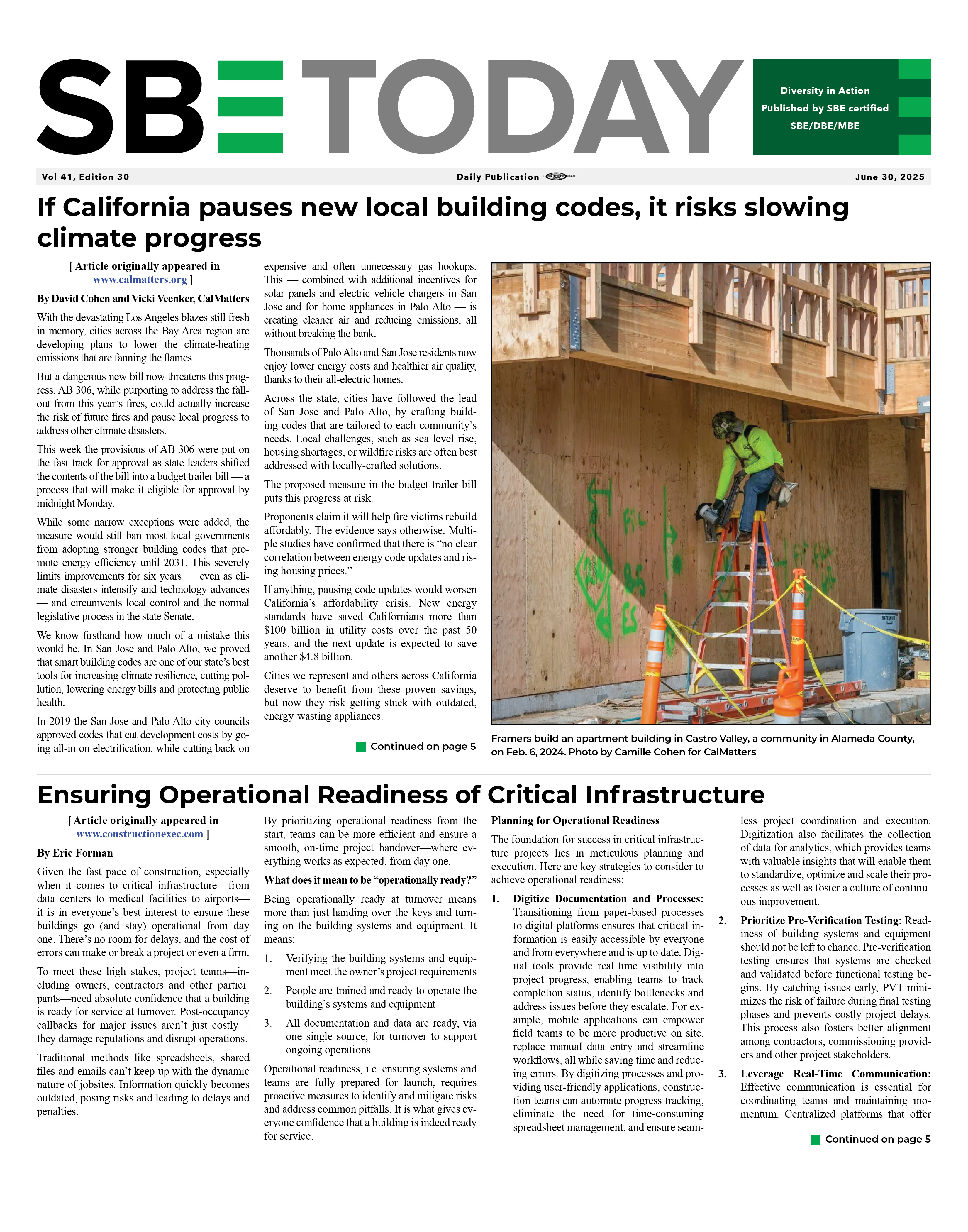|
|
How to Build and Manage Lasting Supplier Relationships
05/12/2022
By Emily Newton,
When business owners and leaders have strong supplier relationships, there’s a higher chance the company will have what it needs to stay profitable and keep customers happy. Here are some actionable tips to create those fruitful relationships and engage in supplier relationship management.
Buy in Bulk When Possible
Buying products in bulk could convince a new supplier that a new customer is worth the time. If the purchases are only in small quantities and happen very occasionally, the supplier may not prioritize those orders.
Another benefit of buying in bulk is that the supplier may offer discounts on orders that are above certain quantities. Such purchases help establish a good relationship with a supplier while helping the business save some money.
However, the more a customer buys, the more they could find themselves in a bind if something goes wrong. A customer should never plan a bulk order without doing extensive research into the supplier to ensure they’re reliable and trustworthy.
It’s also often necessary to engage with suppliers to specifically ask them if the prices for certain items would be lower if purchasing higher quantities. A potential customer may not see the bulk prices listed online or within printed materials, but those details could come up in a conversation.
Use Technology to Keep Track of Inventory
It’ll be challenging to create a mutually beneficial relationship with a supplier if the customer is consistently running low on items and insisting they need orders urgently filled. On the other hand, if the customer buys more than they need when placing each order, the supplier may not hear from them often enough to maintain a strong and lasting business relationship.
These are instances where inventory management tools can come in handy. Some also integrate with other technologies. For example, a platform might automatically update stock levels when an employee uses an RFID scanner to record them as received.
Inventory management solutions also often have demand forecasting features. They help predict how much of an item to stock based on sales data and other details. Then, it should be easier to have more productive communications with suppliers.
Set Expectations and Initiate Supplier Audits
A significant part of successful supplier relationship management involves ensuring suppliers know what’s expected of them. When customers have specific supplier expectations related to supply chain sustainability, they may perform periodic audits to see whether a supply chain partner is upholding their promises. The same is true in highly regulated industries.
As valuable as they are, supplier audits can represent a significant time and resource commitment. However, a business may not have the workload or supplier network size to justify hiring a full-time auditor. Moreover, it may be unfeasible for someone already working at the company to broaden their duties to assume an auditing role. In such situations, working with auditors on a contractual basis can be a smart solution.
One company did that by working with approximately 35 contract auditors who performed about 250 supplier audits each year. They were also spread around the country, reducing the time spent traveling to different locations.
Alternatively, create a supplier checklist showing the ideal metrics for them to meet. Reviewing it at least annually can help a company leader decide whether to renew the supplier’s contract.
Rank Suppliers According to Risks
It’s unrealistic to hope that a supplier will meet all expectations 100% of the time. A more practical approach is to analyze the risks they pose to a company according to various factors.
Chris McClory, director of procurement and operations advisory at KPMG US, said, “The reliability on third parties and suppliers has increased significantly in the past 15 to 20 years. Your ability to manage them and become a customer of choice is now critical if you want the best value.”
He recommended segmentation to evaluate the overall return on investment (ROI) within different supplier relationships. “By segmenting your supply base, you understand who your strategic suppliers are, the ones that keep the lights on, keep the production line running, or keep the data secure. It is about understanding what the ROI [in the relationships] might be,” he explained.
It’s not always necessary to end a supplier relationship with higher-than-average risks. However, see where weak points exist, then give suppliers time and guidance to improve them. If they fail to act, that could be a sign they’re too risky to work with for the long term.
Pay Promptly
Building a reputation as a customer that pays on time and without hassles is another key element of a beneficial relationship. Exploring solutions that automate or send reminders about certain parts of the payment process could keep the business from falling behind.
Once a company establishes it as one that pays on time, that characteristic could increase the likelihood of a supplier helping that customer out in an emergency. Dennis Snyder, the general manager of lighting and decorative hardware with Kohler Co., explained why it’s so important to have those suppliers that will assist in times of need.
“Today, there are many companies with supplier relationships lasting decades, and when you've built that length of relationship, you'll find that they're the ones that respond to you. Those are your core partner suppliers, and I recommend you understand who they are, so that when you have an issue, they're the ones you count on to react. Remember that suppliers are receiving the same ask from potentially multiple competitors of yours, and they'll evaluate whom they prioritize based on business level,” he said.
Paying on time isn’t the only element of creating a long-lasting supplier relationship. However, it’s a necessity that can create the supplier confidence to help the partnership flourish.
Supplier Relationship Management Is an Ongoing Effort
Maintaining supplier relationships takes continual work, but it often pays off. By using these suggestions, business owners will find that strengthening supply chain partnerships is a goal within their influence.
Back To News
|

SBE Northeast
Louisiana Business Journal Archive Archive
|





